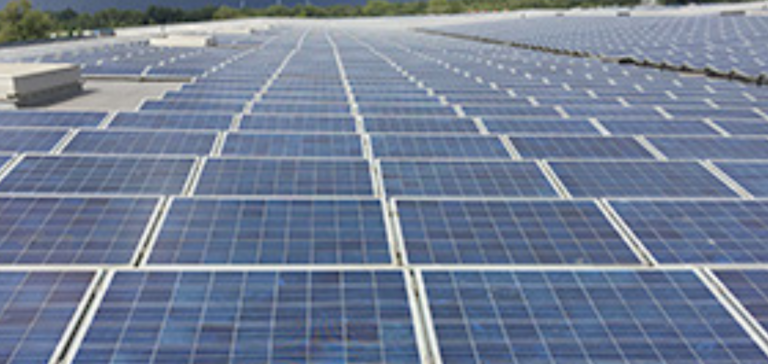Solar energy, a fast-growing renewable energy source, is at the heart of sustainable development strategies across Europe. However, the Danish company Nordic Solar, renowned for its innovative initiatives in this sector, is taking a significant step forward with the construction of its largest solar park in Moletai, Lithuania. The project, which is scheduled to start generating electricity in the first half of 2024, represents an important milestone in Nordic Solar’s growth path, and underlines the growing importance of solar energy in Europe.
The Moletai Solar Park: a project of enormous scope
With a production capacity of 100MWp, equivalent to the annual consumption of around 28,000 European households, the Moletai solar park marks a significant step forward for Nordic Solar. However, this project, located around 60 km from Vilnius, the Lithuanian capital, is part of a geographic diversification drive by the company, which already owns solar farms in nine European countries with a total generating capacity of around 390MWp. The addition of the Lithuanian park strengthens Nordic Solar’s position as a major player in the European solar energy sector.
Innovation and Biodiversity: Assets of the Solar Park
Nordic Solar doesn’t just develop energy production capacity. The company has developed a patented solution to optimize energy production. In Lithuania, the solar park, comprising over 150,000 solar panels, benefits from a proprietary steel structure that minimizes shading and maximizes energy efficiency. In addition, special attention is paid to biodiversity. Furthermore, in collaboration with local biologists, Nordic Solar integrates initiatives to encourage plant and animal life around the park, demonstrating a remarkable environmental awareness.
Impact and prospects
Nordic Solar’s entry into the Lithuanian market, a member of the European Union and the euro zone, testifies to the strategic importance of this region for the expansion of renewable energy. However, the Moletai project is a concrete example of the company’s commitment to a sustainable energy transition, aligned with the growing demand for renewable energy and the strengthening of local energy supplies. The completion of this solar park, a blend of technical innovation and environmental commitment, illustrates Nordic Solar’s ambition to play a key role in Europe’s energy transition.
The Moletai solar park, a flagship project for Nordic Solar, represents a significant step forward in the field of solar energy, combining technological innovation with a commitment to biodiversity.






















